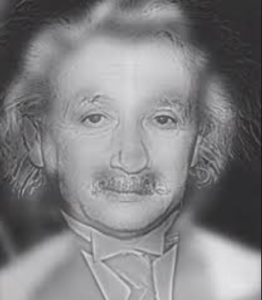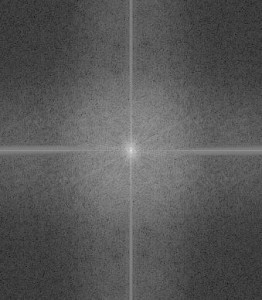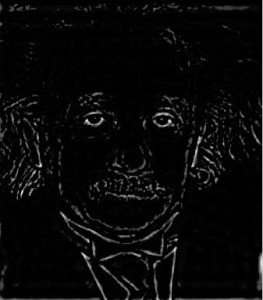There is an Einstein-Monroe picture wandering around the Internet that I recently saw. It can be a nice example of how human vision works as well as building a high and low pass filter from scratch in order to extract both images.
This picture includes a low frequency picture of Monroe and a high frequency picture of Einstein blended together. Human vision notices details of its environment when objects are close (high frequency). That means that when we are close enough (a normal distance) to this picture, we should be able to see Einstein’s face, otherwise you should check your sight. If you take 3 steps back and see the same picture, you should be seeing Monroe’s face because your vision is not able anymore to get the small details of the picture. Instead, it will get a general idea of the picture (a bit blurry).
Since this is about high and low frequency pictures, we can build high and low pass filters to extract the frequency of the image we want. Thus each original image is theoretically possible to be extracted.
First of all, we can see how the Fast Fourier transform looks like. In order to achieve it, we have to perform the 2-D Fast Fourier, shift it, and scale it.
The low frequency data of the image is in the center of the previous image. Thus a simply low-pass filter can be built by keeping the center and removing the rest, as this picture shows. If we want to extract the opposite, we can invert it.
 |
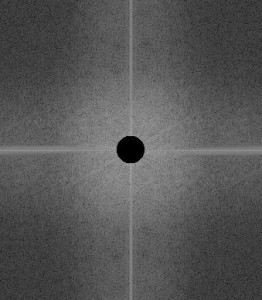 |
|
| Low-pass filter | High-pass filter |
The radius of the circle needs to be manually adjusted depending on the output. When we try to rebuilt the image using both of those Fourier Transform, we get the original images.
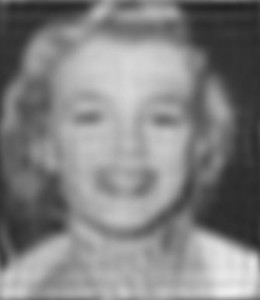 |
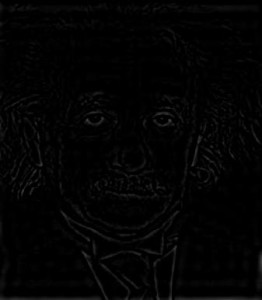 |
|
| Low frequency image | High frequency image |
Since in my secondary screen I can barely see Einstein’s face, I tried to increase the contrast to make it easier to see in case you have the same issue.
The code is provided in the Source code section.
Interesting Links
1. S. Lehar. “An Intuitive Explanation of Fourier Theory”, http://cns-alumni.bu.edu/~slehar/fourier/fourier.html.
